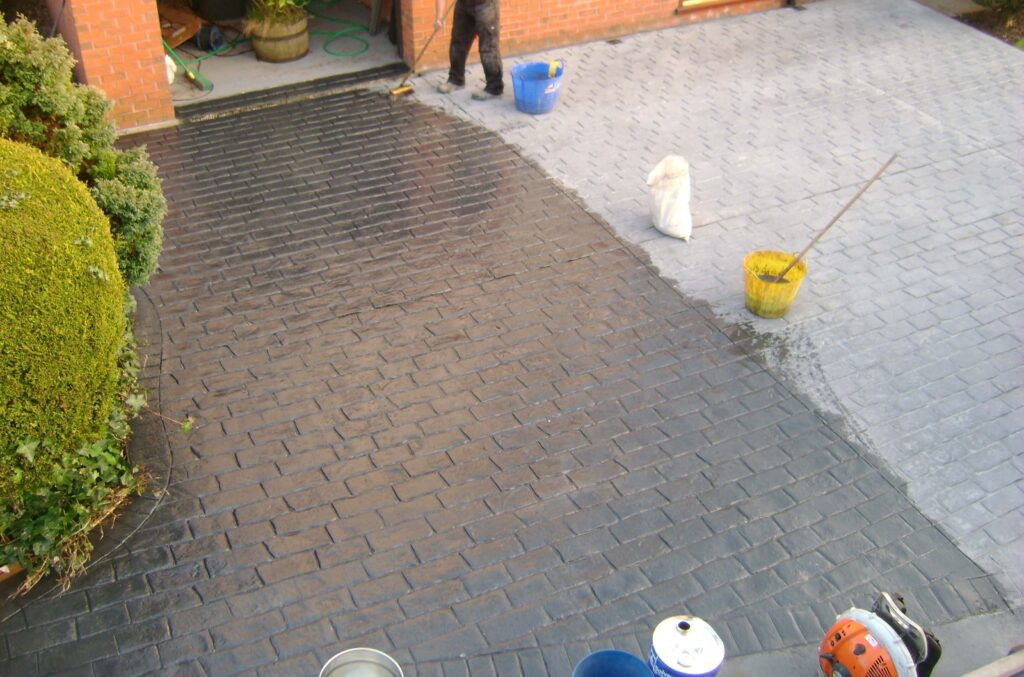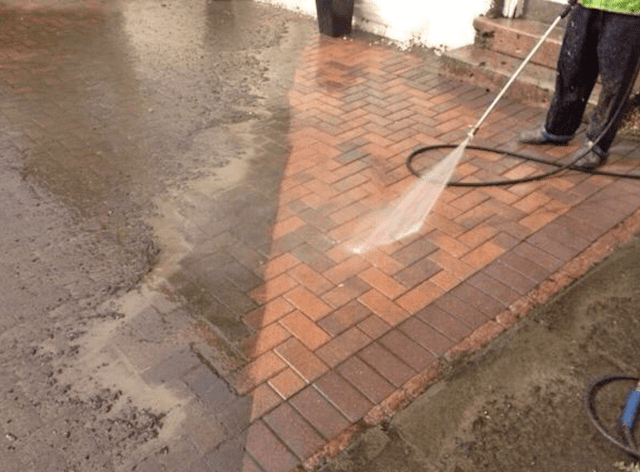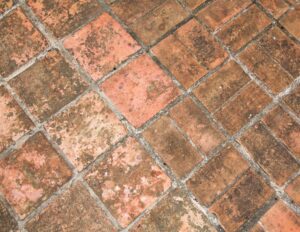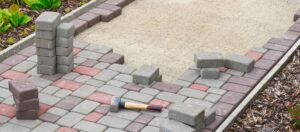Pressure washing is one of the best ways you can clean your driveway. When used correctly, it can get rid of even the most resistant stains and difficult forms of dirt. But should you seal your driveway after pressure washing it?
This question is more complicated than it seems. In fact, the maintenance aspects of driveways, both before and after pressure washing, are very important and can completely change the dynamic of the job.
Most of these aspects are closely related to what kind of material your driveway is made of, in what form this material is being used, and the general integrity of its structure.
In this article, we are going to discuss how to properly pressure wash your driveway and what maintenance steps that you should take afterward, according to your type of driveway.

Jump to:
Before Pressure Washing Driveways
Pressure washing is an excellent choice when it comes to driveway cleaning. No matter what kind of material your driveway is made of, there’s always a proper way to use the pressure washer to do the job.
However, the type of material your driveway is made of can change the process a little. For example, if your driveway is made out of concrete pavers, there are a few steps you need to take before actually using the pressure washer.
The question you need to answer before anything else is: is your driveway made out of pavers or poured concrete?
This is the most important distinction that will change the way you approach your driveway maintenance.
Paver Driveway Pressure Washing
If you’re working with pavers, you have the grout lines between pavers to worry about. Weeds can grow between those grout lines, so first, you need to deal with them before pressure washing.
There is a lot of option of products you can use to kill these weeds around the market. You can safely pick any products designed with that purpose in your local store.
The way these “weed-killing” products work usually involves spraying them around your driveway, leaving them to act for about 24 hours, and then removing it during the pressure washing process.
However, the best course of action is to always follow the instruction rules on the label of the product you end up buying. Some products may have a different composition and therefore work in a different way.
After killing the weeds, is time to pressure wash your pavers. Make sure to give special attention to the joint of the pavers, removing any sand and debris from it.
Feel free to also use any cleaning product specially designed for it and for the material of the pavers. After the pressure wash, you need to give your pavers time to dry before moving on to the next step: the re-sand of your driveway.
Re-sanding is an extremely important step that you cannot speak. This article will help understand its importance and the steps on how to do it.

Should I Seal My Paver Driveway After Pressure Washing?
Yes. You absolutely should.
After re-sanding it, make sure your driveway has no excess sand by thoroughly sweeping it. After that, apply the sealant, again following the instructions on the product label.
Check for spots where the sand might have seeped in after the first coat of sealant. In those spots, add more sand, carefully sweeping it around. After that, apply the second hand of sealant and then your job is very likely done.
Sealing your paver driveway is extremely important, as it prevents weeds from growing between the joints, making the future maintenance process way easier and your driveway resistant to stains.
For that reason, sealing is recommended even if your pavers are made out of a non-porous material. Even in those cases, weeds can still grow between pavers and cause damage to the installation.
Poured Concrete Driveway Pressure Washing
If you’re working with a poured concrete driveway, the job can be a little tricky, even risky.
Without the grout lines, there’s no need to worry about killing weeds or re-sanding anything after pressure washing. Your enemy in this case is the process itself.
Pressure washing concrete needs to be a very methodic and calculated job. Using too much pressure can damage your driveway.
For unpainted concrete, most professionals recommend using 3000 PSI, at the most, with a flow rate of 3 GPM. For painted concrete, it is recommended to start at half that amount to avoid peeling off the paint.
If you’re looking to get rid of any resistant stains, mold, or mildew, consider using soap or a specialized cleaning product alongside it.
Should I Seal My Poured Concrete Driveway After Pressure Washing?
Again, yes. You absolutely should.
Concrete is a very porous material and sealing it makes all the difference when it comes to its maintenance and longevity.
After pressure washing your concrete driveway, it is imperative that you wait until it is completely dry before sealing it.
Applying the sealer itself couldn’t be simpler. Add the first coat as instructed by the label of your product of choice, wait until is dry and check for blotched spots. On those spots, reapply the second coat of sealer and then you’re set.

Professional Help with Driveway Cleaning and Sealing
Sealing your driveway, regardless of its material, is very important to make sure that your future maintenance jobs are easier and more effective.
It also ensures the longevity of the driveway, since it becomes less prone to stains and weeds growing between the joints, in the case of pavers.
While cleaning and sealing your driveway can be a simple and fun DIY job over the weekend, the best course of action is to always hire professionals to help you with that.
Their expertise allows them to use the right products and take the right measures to do the best job possible.
Here at JS Brick, we are proud to offer top-quality services in that area as well as in any paver supply, installation, and maintenance need our customers might have.
Give us a call right now at +1 941 586 9140 or reach us through our email at [email protected].



